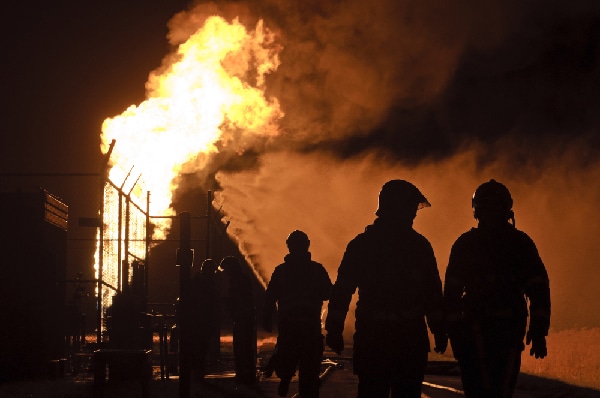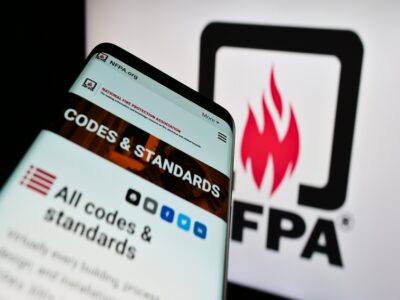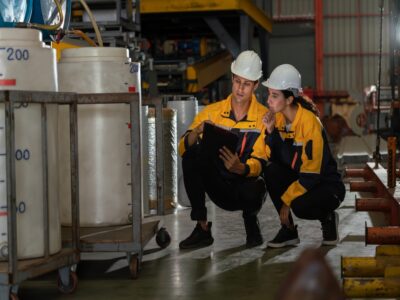
At Stonehouse Process Safety, we understand that today’s professionals need flexibility—without compromising on quality. That’s why we’ve introduced on-demand e-learning to our suite of training options. This self-paced format allows individuals and teams to access high-quality process safety training anytime, anywhere.
Our e-learning modules are designed by our in-house process safety experts, drawing on decades of practical experience in combustible dust hazards, electrostatics, ignition source control, and more. The courses combine engaging visuals, narrated content, real-world examples, and interactive quizzes to support deep learning and long-term retention.
Key Features of On-Demand E-Learning
Self-paced learning
Access course content when and where it suits you. Pause, rewind, and review as needed—ideal for busy professionals or those in shift-based roles.
High-quality technical content
All materials are developed and reviewed by Stonehouse engineers and scientists with hands-on experience in process safety challenges.
Engaging and interactive
Our modules use animations, voiceover narration, case studies, and knowledge checks to make learning more engaging and effective.
Immediate access
Ideal for individuals or teams
Whether you’re an EHS manager looking to upskill your staff, a professional looking to build knowledge on your own, or have all staff including operators gain awareness of specific hazards, our e-learning platform supports all.
Certificate of completion
Learners receive a certificate to demonstrate completion or competency after successful completion of each course.

NFPA 660 Training Requirements
NFPA 660 requires that all personnel who could be exposed to combustible dust hazards, including engineers, operators, maintenance teams, housekeeping staff, and management, receive combustible dust training relevant to their roles. The training must cover the hazards of combustible dusts, safe work practices, emergency procedures, and the controls in place to prevent explosions and fires.
According to NFPA 660:
- Engineers and technical staff should receive in-depth training to understand explosion mechanisms and mitigation strategies.
- Operators, maintenance, and cleaning staff must receive awareness-level training focused on recognition of hazards, ignition source control, and their role in dust control.
- Training must be provided before initial job assignment and repeated at regular intervals (typically annually) or when job roles, materials, or procedures change.
- Documentation of training is mandatory.
Our on-demand training can help your teams stay compliant, up-to-date, and safe.
Who Should Sign Up for Training?
Full Training Courses - Professionals
Awareness Courses
– Other Staff
Process Safety Professionals
Plant Operators
Chemical and Process Engineers
Leadership and Administrators
EHS and Operations Managers
Housekeeping Staff
Maintenance Staff
HR Management
Plant Technicians
Visitors To Site
(including contractors)
Anyone responsible for hazard awareness and prevention in industrial environments
All employees that might visit production areas

How to Access
Getting started is easy:
- Browse our course list and select the module that fits your needs.
- Complete your registration and payment securely online.
- Access your course instantly and start learning.
Discounts available for group registrations
E-learning Courses Available
Our on-demand course catalogue is growing. Current and upcoming modules include:
Current Courses

Exploding Dusts ($550)
Understand combustible dust, conditions for dust fires and explosions, combustible dust test results, applicable codes and standards (including NFPA 660), and selecting and establishing explosion prevention and protection strategies.

Dust Explosion Awareness ($100)
This 1-hour training provides operators, supervisors, and non-specialist staff with a clear understanding of how dust explosions occur, the risks they pose, and the simple steps everyone can take to help prevent them.
Exploding Dusts Trailer (Free!)
Watch this free 15-minute trailer for a peek into our Exploding Dusts course.
Languages
All our on-demand e-learning course are available in several languages including Spanish, Mandarin, French, German and others.
Spanish/ Español
¡Tráiler de Polvos que explotan!
¡Gratuito!
Mire este tráiler gratuito de 15 minutos para obtener un adelanto de nuestro curso Exploding Dusts.
Upcoming Courses
¡Polvos que explotan!
Comprenda las explosiones de polvo, los resultados de las pruebas de combustibilidad, los códigos y normas aplicables (incluida la NFPA 660), y la selección y aplicación de estrategias de prevención y protección contra explosiones.
Curso de concienciación sobre riesgos de polvo explosive
Proporciona al personal no especializado una comprensión clara de cómo ocurren las explosiones de polvo, los riesgos que conllevan y las medidas sencillas que todos pueden tomar para ayudar a prevenirlas.
Electrostatic Hazards
Learn about static electricity with this detailed look at charge generation, accumulation, and control strategies for risk elimination.
Electrostatic Hazards Awareness
to encourage vigilance and reporting of potentially dangerous manifestations of static electricity on plant
Hazardous (Electrical) Area Classification
Practical Approach to Use of Electrical Equipment in Hazardous Locations; the Nature of flammable atmospheres, Purpose of HAC, and Methodology of Classification.
Process Safety Management
Designed for professionals dedicated to maintaining and enhancing safety, this comprehensive course is an essential resource for anyone involved in the management of hazardous chemical processes.
Process Hazard Analysis
Provides an overview of Process Safety Management (PSM), PHA preparation, PHA risk assessment methodologies, and follow-up.
Ready to Learn at Your Own Pace?
Inquire about Stonehouse’s On-Demand E-Learning courses now.
* indicates required fields








